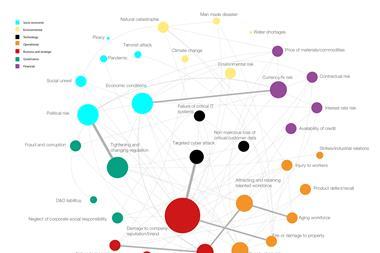Buying insurance is still a major part of most risk managers’ role. Sue Copeman interviews Lockton chairman Mike Hammond
Can and should an insurance broker provide all things to all clients including very specialised consultancy services? Not according to Mike Hammond, chairman, Lockton Limited.
In an exclusive interview with StrategicRISK this week, Hammond calls for a return to basics. “The risk management community is being challenged by big brokers representing themselves as the one stop shop model - a panacea for all.” But Hammond doesn’t think that the strategy adopted by Lockton’s larger competitors is working, and indeed that it is alienating employees and existing and potential clients.
“We’ve hired a lot of people from bigger brokers over the last few months because rather than focusing on what the client originally employed their broker for – a solution in the (re)insurance market – the big brokers are charging their employees to go out and sell more product.”
Hammond says that not only brokers’ employees but also clients have become frustrated with an approach that focuses on selling a suite of incidental products and ends up deploying time and resources away from specific (re)insurance problems – the reason why the broker was called in in the first place.
“The risk management community is being challenged by big brokers representing themselves as the one stop shop model - a panacea for all
Mike Hammond, chairman, Lockton Limited
Hammond clearly defines the Lockton model: “We want to be the best placed with those companies that need to buy insurance and certain solution-based services. A lot of consultancies can come and tell you what’s wrong but they don’t necessarily tell you how to cure it.”
He cites the number of ‘big name’ broking specialist and clients who have joined Lockton in the last few months as proof that the model is working. He also believes that, as a privately owned company, Lockton’s ability to make quick strategic decisions is a major advantage.
Claims consulting is one area that Hammond emphasises. “We look at programmes and how they will respond. Frankly I think part of the industry has forgotten that because the first thing you get after a claim is a 20 page reservation of rights letter rather than how to get the claim paid. That is something we as an industry have to tackle. Unless that insurance policy responds fully and quickly I do not think that the industry is doing the job that it set out to do. So we look at programmes and see how they are going to work in practice to responds to the loss that our clients might have in the future.















